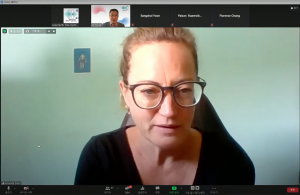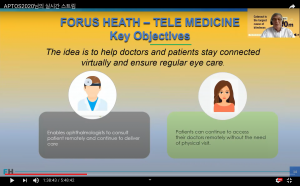Join the Leading Global Eye Health Alliance.
Membership-
Choose an alternate language here
This past Saturday the 5th Asia Pacific Tele-Ophthalmology Society (APTOS) symposium was broadcast live from Seoul. Of course, 2020 is ‘different’ and whist most attendees were no doubt disappointed not to be present in Seoul, the organisers and members of APTOS produced a stellar event. For the first time, IAPB was significantly involved in the congress, together with our key Korean member and co-hosts at Yonsei University.
Organising Committee Chair, Dr Sangchul Yoon noted that “collaboration and cooperation between the International Agency for the Prevention of Blindness (IAPB) and Asian Pacific Tele-ophthalmology Society (APTOS) can bring dramatic advancement for public eye health to solve the long existing problems of working in resource limited conditions.”
Indeed, APTOS’ focus on sharing and discussing the application of various technologies in eye health has been given particular impetus by the pandemic and also builds on the recommendations from the WHO World Report on Vision. It was fitting that Dr Alarcos Cieza, WHO Coordinator, Blindness and Deafness Prevention, Disability and Rehabilitation, opened the meeting.

